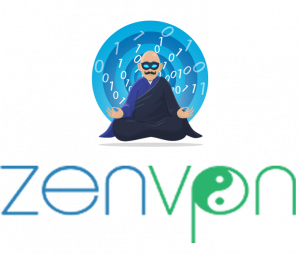Understanding the Role of Regulatory Support in Nuclear Licensing
Learn how regulatory support aids nuclear licensing. Discover its role in ensuring safety and compliance throughout the lifecycle of nuclear projects.

Nuclear energy is a crucial part of the global energy landscape. As we move toward more sustainable and low-carbon energy sources, nuclear energy remains at the forefront of the conversation. However, the path to building and operating nuclear facilities is complex, heavily regulated, and requires navigating an intricate framework of safety standards. This is where Nuclear Licensing and Regulatory Support come into play.
Nuclear facilities, whether they are power plants, research reactors, or waste management sites, must comply with stringent regulatory requirements to ensure safety and environmental protection. These requirements, governed by both national and international bodies, ensure that nuclear energy is harnessed in a responsible and safe manner. But navigating these regulations is not always straightforward. This is where regulatory support becomes invaluable.
In this article, we will explore the key role of regulatory support in nuclear licensing and discuss how entities like Certrec assist in this complex process. By the end, you will have a clearer understanding of the relationship between nuclear licensing and the essential support provided by regulatory experts.
What is Nuclear Licensing?
Nuclear licensing refers to the legal process required for obtaining the necessary permits and approvals to design, build, and operate nuclear facilities. This process ensures that these facilities meet all safety, environmental, and operational standards outlined by regulatory authorities. These licensing procedures involve extensive documentation, rigorous testing, and continuous monitoring throughout the lifecycle of the facility.
The licensing process can vary depending on the type of nuclear facility, its location, and the regulations of the specific country or region. Typically, it involves multiple stages, including:
- Pre-Application: Early consultations with regulatory bodies to discuss the project and understand the regulatory framework.
- Application: Submission of detailed technical, safety, and environmental documentation to demonstrate compliance with regulatory standards.
- Review: Scrutiny by regulatory bodies, where they assess the submitted documentation and conduct site inspections if necessary.
- Approval: After the review process, the regulatory body will issue a license if the facility meets all required standards.
Once a license is granted, the operator must adhere to continuous oversight, including regular inspections, updates, and compliance reporting. Any significant changes to the facility or its operations require additional approval or amendments to the original license.
Regulatory Bodies Involved in Nuclear Licensing
In every country, nuclear licensing and regulatory processes are governed by specific regulatory bodies that ensure nuclear safety. These regulatory agencies are responsible for setting safety standards, conducting inspections, and granting approvals. Examples of such bodies include:
-
U.S. Nuclear Regulatory Commission (NRC): In the United States, the NRC oversees all aspects of nuclear licensing. It ensures that nuclear power plants, reactors, and other related facilities operate safely.
-
International Atomic Energy Agency (IAEA): The IAEA plays an important role in promoting nuclear safety on a global scale. While it does not directly issue licenses, it sets the international standards and provides guidance to countries about the safe use of nuclear energy.
-
European Nuclear Safety Regulators Group (ENSREG): This group includes nuclear regulators from across Europe, working together to ensure safety in the design, construction, and operation of nuclear facilities.
Each regulatory body operates with the goal of ensuring the safety of both people and the environment by enforcing strict compliance with nuclear safety standards.
The Role of Regulatory Support in Nuclear Licensing
Given the complexity and importance of nuclear licensing, it is essential for organizations to seek regulatory support to navigate the process efficiently. Regulatory support involves guidance, expertise, and assistance in understanding and meeting the complex requirements of nuclear licensing.
Here are some key ways regulatory support plays a role in nuclear licensing:
1. Expert Advice and Consultation
Nuclear licensing involves understanding a vast array of technical regulations, safety guidelines, and environmental standards. It can be challenging for operators to interpret these complex regulations independently. This is where regulatory support steps in, offering expert advice on the regulatory requirements. Regulatory consultants have in-depth knowledge of the nuclear regulatory landscape and can provide valuable insight to ensure compliance.
2. Streamlining the Application Process
The nuclear licensing process is often lengthy and involves a significant amount of documentation. Properly preparing the application requires meticulous attention to detail and a thorough understanding of the requirements. Regulatory support experts can assist in streamlining the application process, ensuring that all required documents are submitted correctly and on time.
3. Safety Analysis and Risk Assessment
One of the core components of nuclear licensing is proving that a facility meets safety standards. Regulatory bodies require extensive safety analysis and risk assessments to assess the likelihood of accidents or failures. Regulatory support teams help nuclear facility operators conduct thorough safety analyses, ensuring they comply with regulations and avoid operational risks.
4. Monitoring and Compliance
Once a nuclear facility is operational, regulatory support is crucial in maintaining ongoing compliance with safety standards. Regulatory experts continuously monitor the facility’s performance, ensuring that it meets operational standards and adheres to required safety measures. If any changes are made to the facility or its operations, regulatory support ensures that these changes are approved by the relevant authorities.
5. Handling Regulatory Inspections
Nuclear facilities are subject to frequent inspections by regulatory authorities. These inspections can be stressful for operators, as any non-compliance could result in penalties or shutdowns. Regulatory support can help prepare facilities for these inspections, ensuring that they meet all the necessary requirements and are fully compliant with regulations.
6. Navigating Regulatory Challenges
Regulatory landscapes can change, and staying updated on evolving laws and requirements is vital. Regulatory support teams are experts in navigating regulatory changes and helping facilities adapt to new rules. This proactive approach ensures that nuclear operations remain compliant and continue without unnecessary delays.
Why Is Regulatory Support Important?
The importance of regulatory support in nuclear licensing cannot be overstated. The nuclear industry is heavily regulated due to the potential risks involved. Nuclear accidents, while rare, can have catastrophic consequences. Therefore, regulatory bodies enforce stringent standards to protect public health, safety, and the environment.
In addition to safety, nuclear projects often involve significant investments, both in terms of capital and time. Navigating the licensing process without regulatory support can lead to costly delays, non-compliance, and even project failure. By working with regulatory support experts, nuclear operators can avoid these pitfalls and ensure the success of their projects.
How Certrec Assists in Nuclear Licensing
Certrec is a recognized leader in providing regulatory support for nuclear licensing. With decades of experience in the nuclear industry, Certrec helps operators navigate the complexities of regulatory compliance. Certrec offers a wide range of services designed to assist with all stages of the nuclear licensing process, including:
- License Application Assistance: Certrec helps facilities prepare their licensing applications, ensuring that all necessary documents are in order and aligned with regulatory requirements.
- Safety and Risk Assessments: Certrec provides comprehensive safety analyses and risk assessments to ensure nuclear facilities meet the highest safety standards.
- Regulatory Consultation: Certrec’s team of experts offers ongoing consultation to ensure facilities remain compliant with evolving regulations.
- Training and Education: Certrec offers training programs to keep facility staff updated on regulatory requirements and best practices.
- Regulatory Change Management: Certrec helps nuclear operators stay informed and prepared for regulatory changes, minimizing disruptions to operations.
With Certrec’s regulatory support, nuclear operators can confidently navigate the challenges of nuclear licensing and ensure that their projects are completed successfully and safely.
Conclusion
In summary, nuclear licensing and regulatory support are essential components of ensuring the safe and compliant operation of nuclear facilities. Navigating the regulatory landscape is complex, and organizations like Certrec play a crucial role in providing the necessary expertise to help nuclear operators meet safety standards and regulatory requirements. By leveraging regulatory support, nuclear operators can avoid costly mistakes, maintain compliance, and focus on operating safely and efficiently.
FAQs
What is nuclear licensing?
Nuclear licensing is the process by which a nuclear facility, such as a power plant or research reactor, obtains the necessary permits and approvals from regulatory authorities to operate. This involves meeting safety, environmental, and technical standards.
Why is regulatory support important for nuclear licensing?
Regulatory support helps nuclear operators navigate complex regulatory requirements, ensuring compliance with safety standards, avoiding costly delays, and facilitating successful licensing applications.
Who regulates nuclear facilities?
In the United States, the Nuclear Regulatory Commission (NRC) oversees nuclear safety. Internationally, the International Atomic Energy Agency (IAEA) sets global safety standards, while regional bodies like the European Nuclear Safety Regulators Group (ENSREG) collaborate on safety issues within Europe.
What role does Certrec play in nuclear licensing?
Certrec provides regulatory support services to nuclear operators, assisting with licensing applications, safety assessments, regulatory consultation, and compliance monitoring throughout the lifecycle of nuclear projects.
How long does the nuclear licensing process take?
The nuclear licensing process can take several years, depending on the complexity of the facility and the regulatory environment. The process typically involves multiple stages, including application submission, review, and approval.
What's Your Reaction?
















